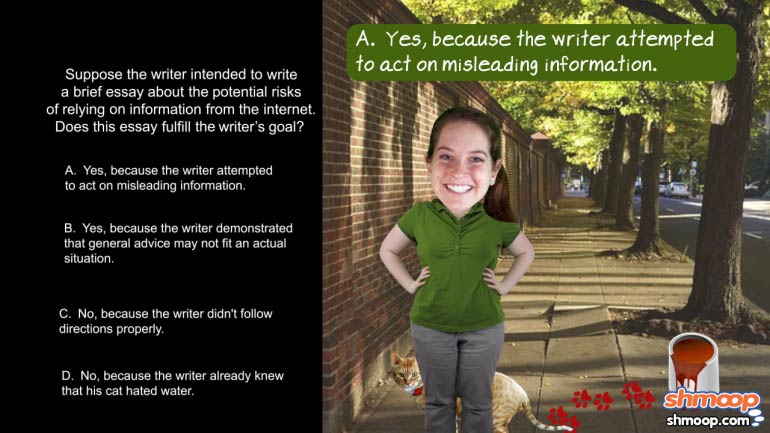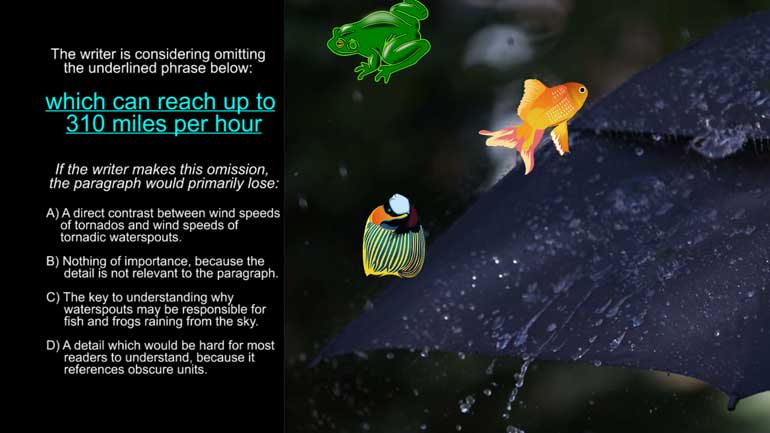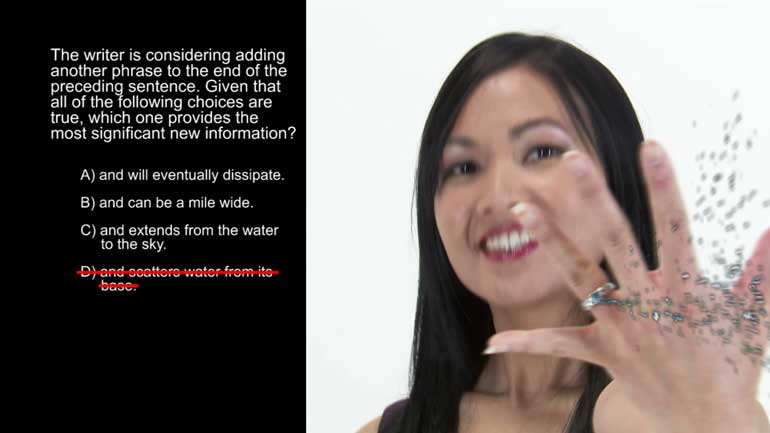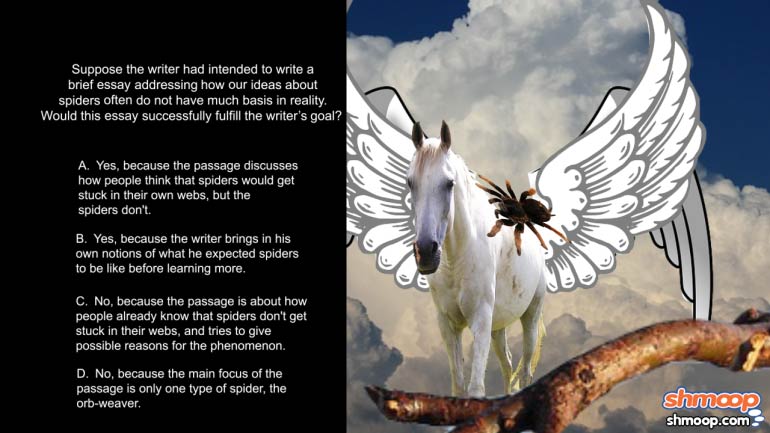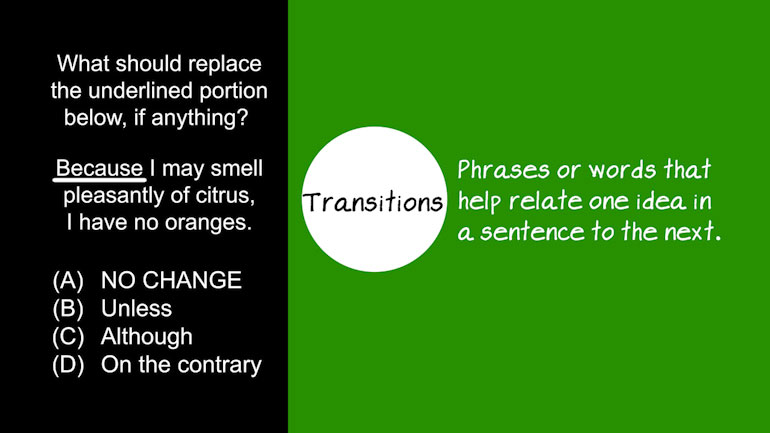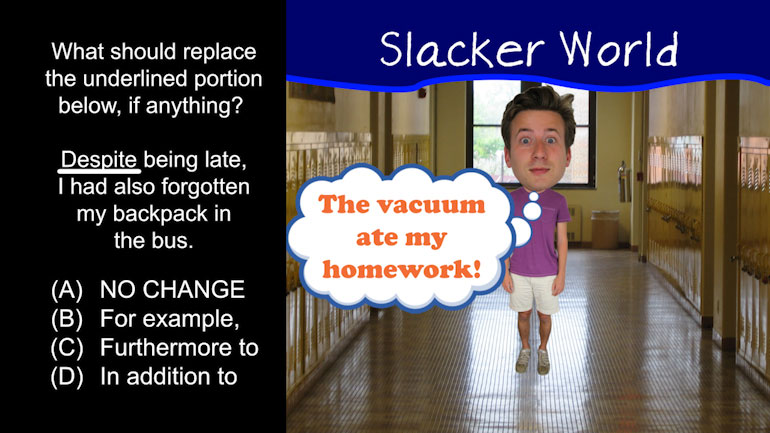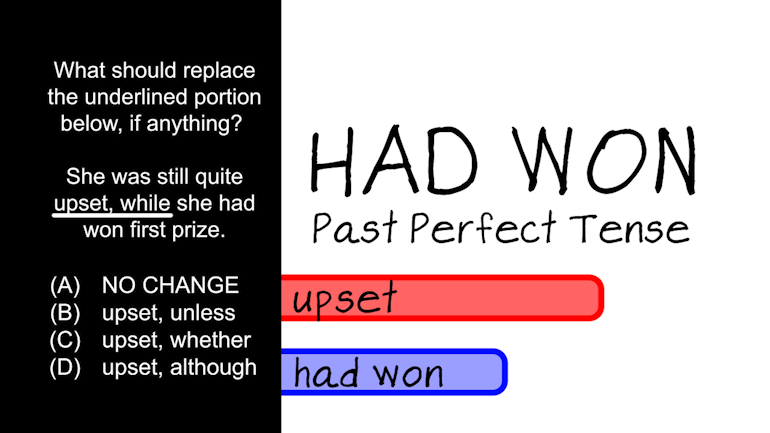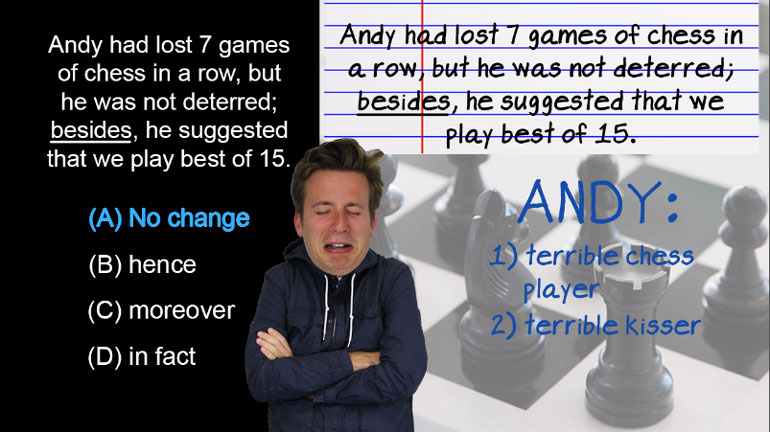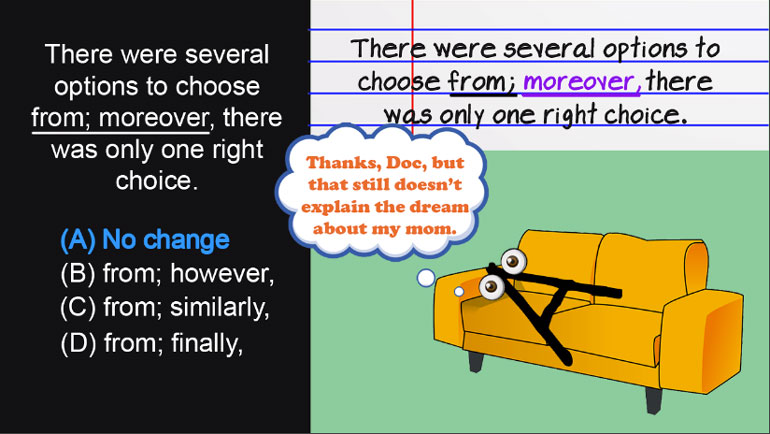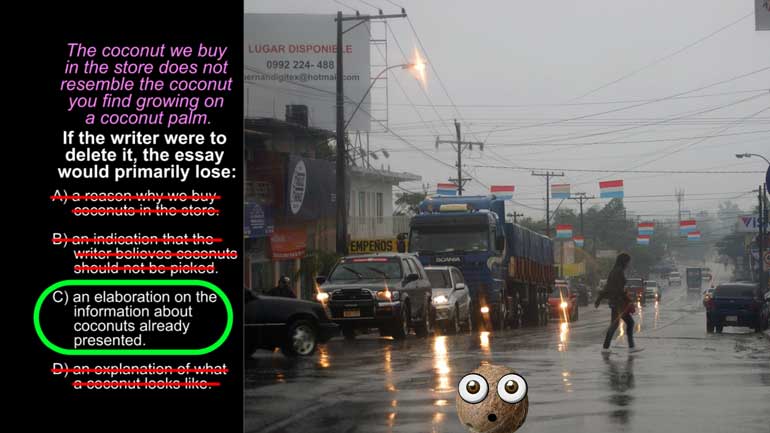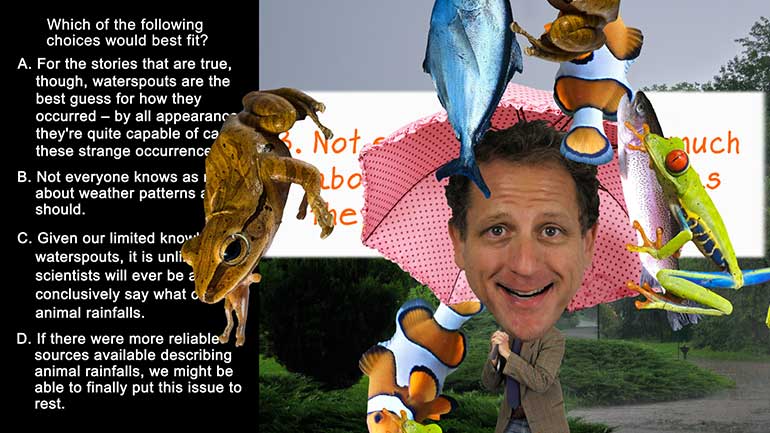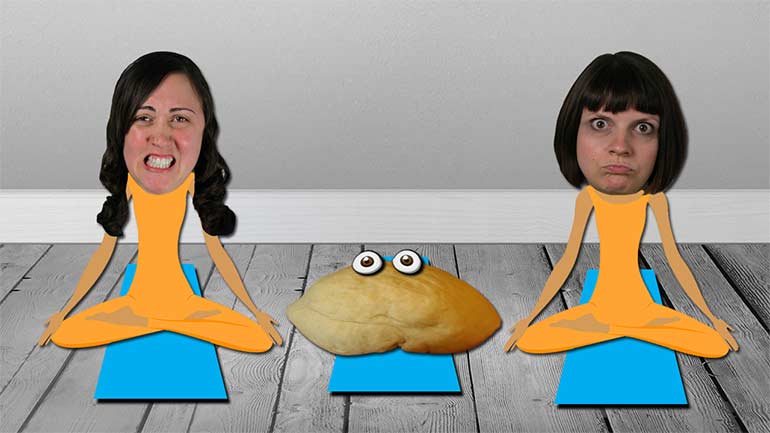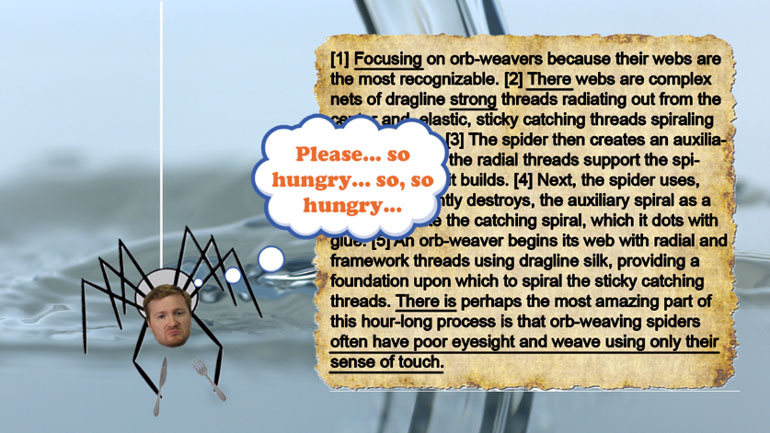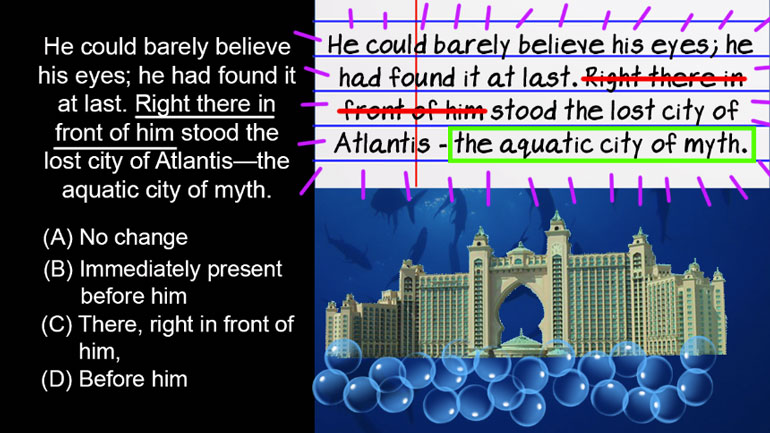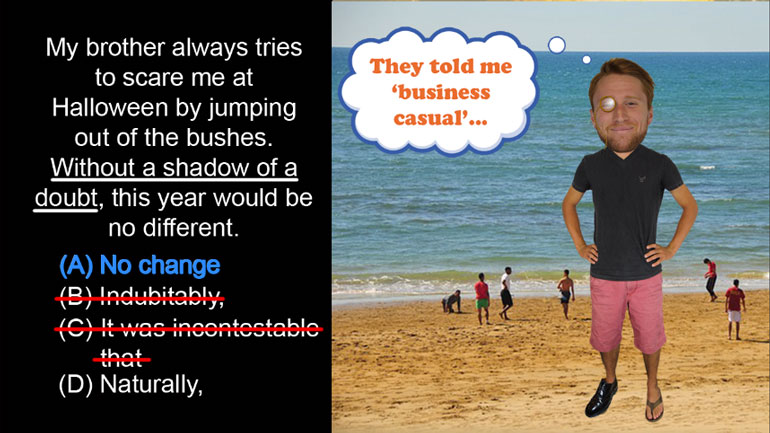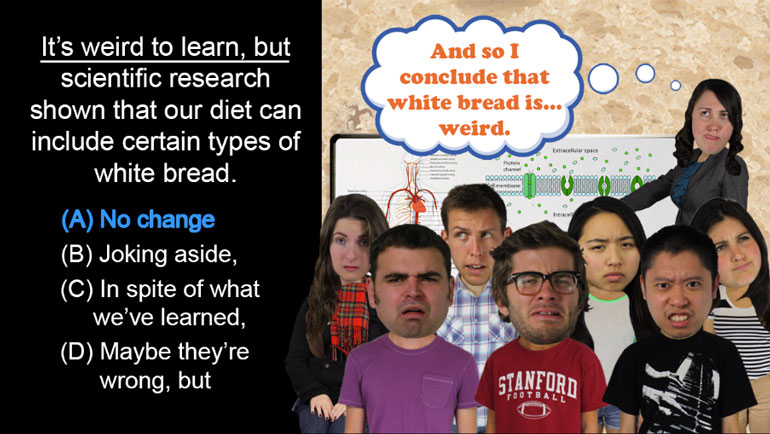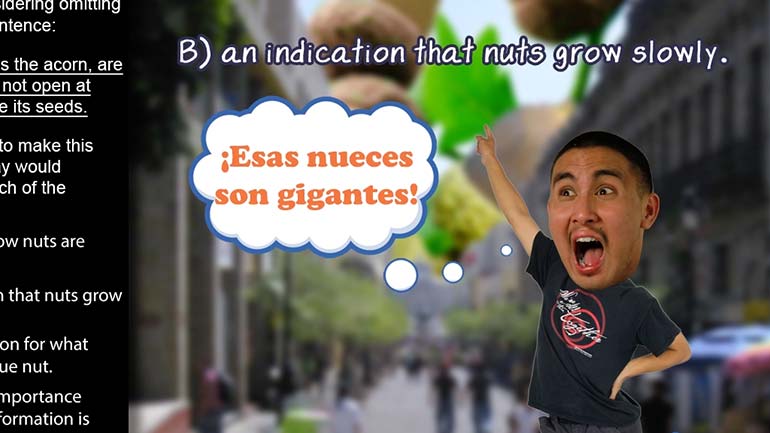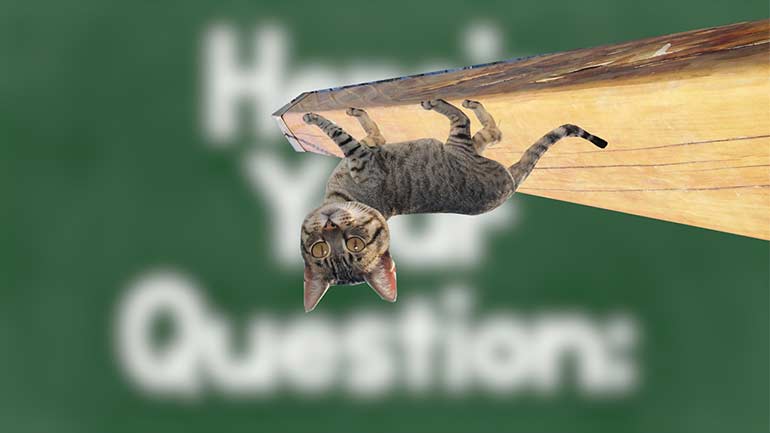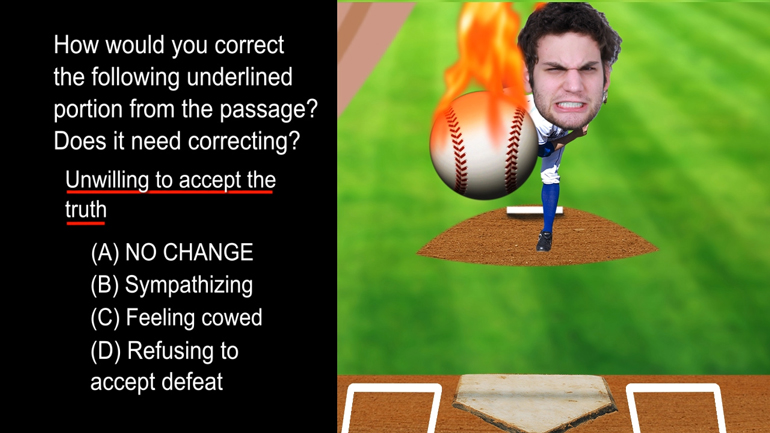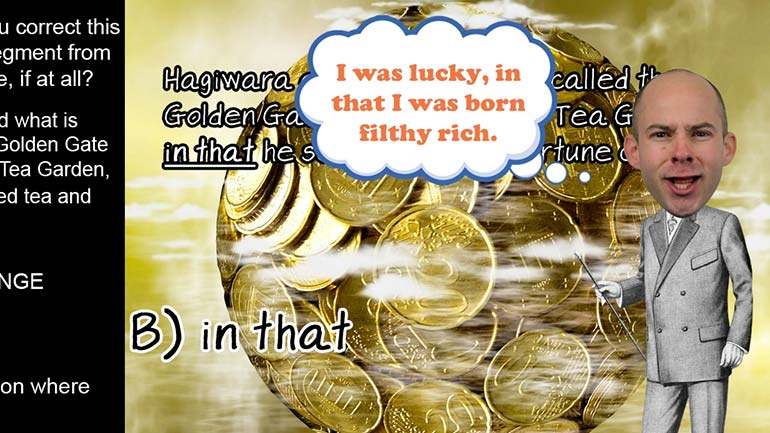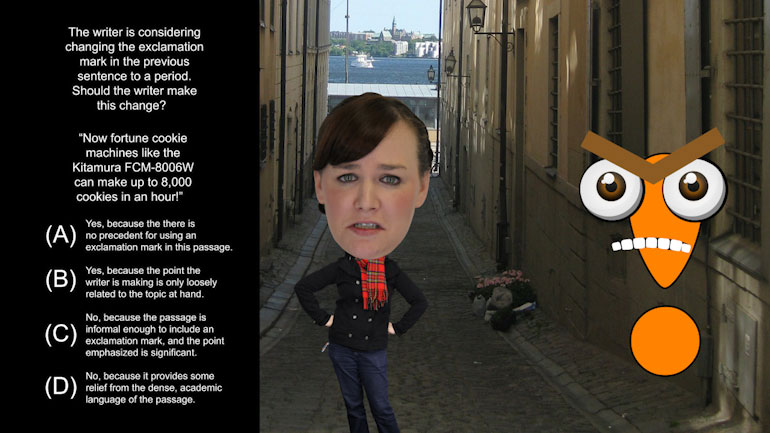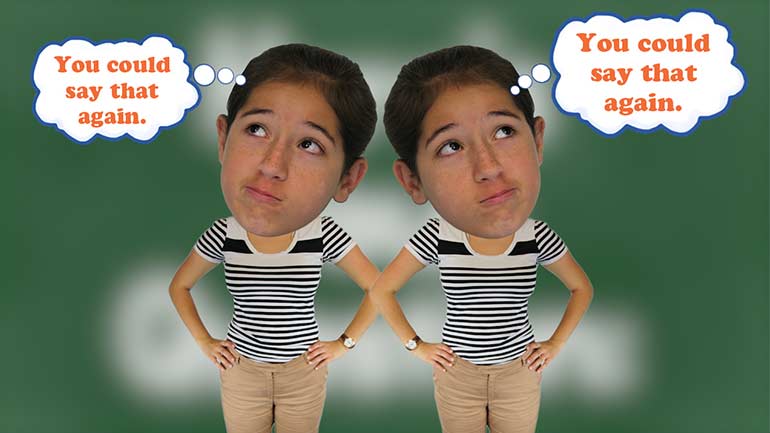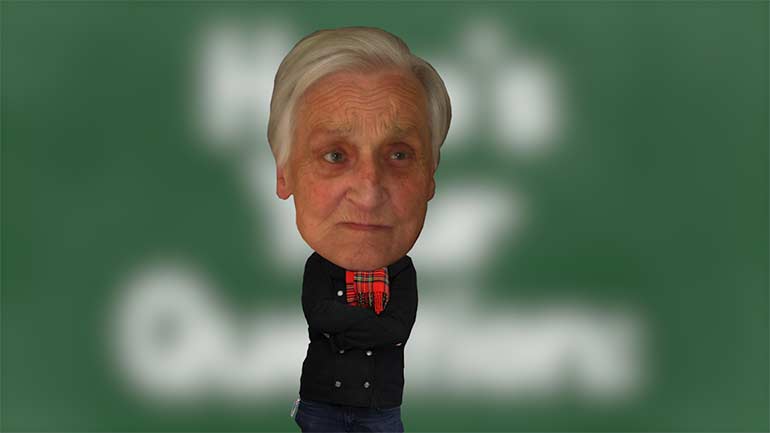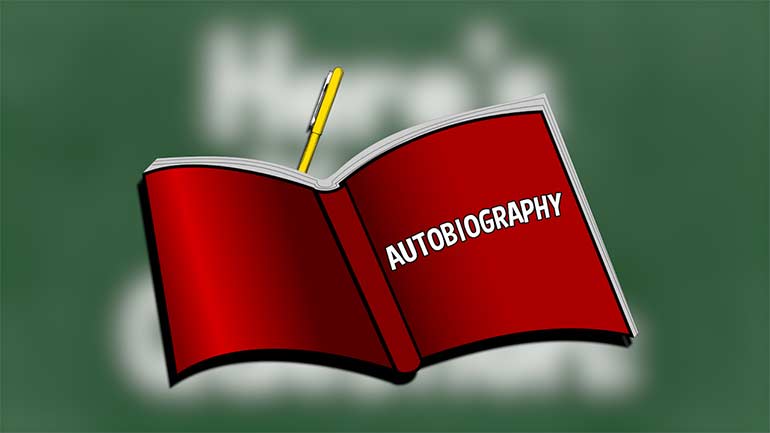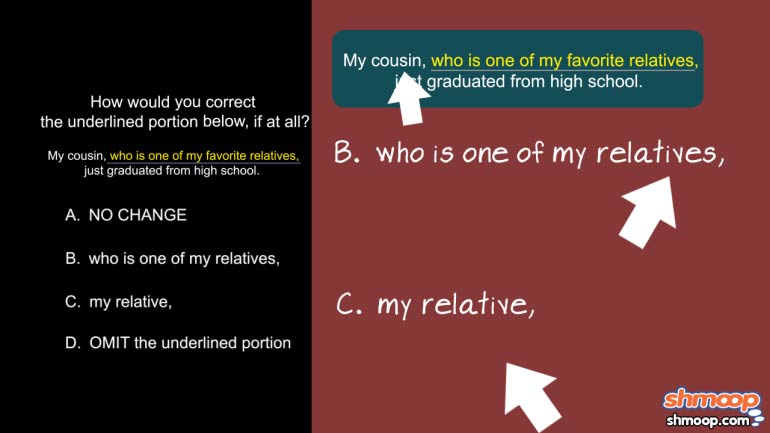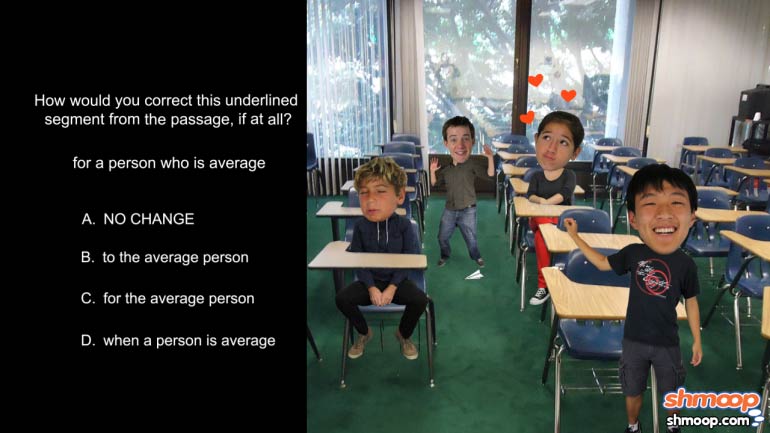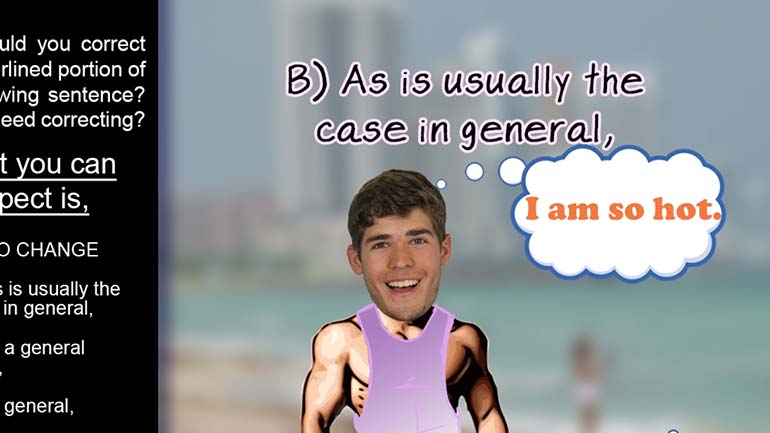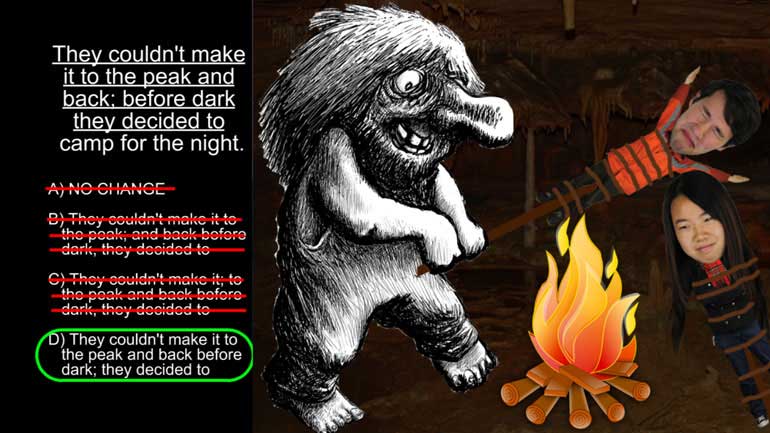ShmoopTube
Where Monty Python meets your 10th grade teacher.
Search Thousands of Shmoop Videos
Rhetorical Skills Videos 50 videos
ACT English: Passage Drill 2, Problem 11. Which of the following sentences would make the most effective transition?
In this ACT English passage drill determine if the writer of the passage may or may not have achieved their proposed goal.
ACT English: Passage Drill Drill 3, Problem 2. What would the paragraph lose if the writer omits the underlined phrase?
ACT English 1.5 Organization 269 Views
Share It!
Description:
ACT English: Organization Drill 1, Problem 5. Which is the correct transition word?
- Rhetorical Skills / Organization: Sentences and Paragraphs
- Product Type / ACT English
- English I EOC Assessment / Introductory and Concluding Paragraphs
- English I EOC Assessment / Organization
- Oral and Written Conventions / Parts of Speech
- Essay Revision / Coherence, Organization, and Word Choice
- Essay Revision / Rhetorical Effectiveness and Use of Organization
- Rhetorical Skills / Organization
Transcript
- 00:03
Here's your Shmoop du jour, brought to you by multiple choice. Like, why can't it be
- 00:08
stop, drop OR roll?
- 00:11
How would you correct the underlined portion of the following sentence, if at all?
- 00:15
There were several options to choose from; moreover there was only one right choice.
- 00:29
Okay, so here we're looking for the transition word that helps us set up a contradiction
Full Transcript
- 00:32
or contrast.
- 00:34
Choice (A) is wrong because the original sentence uses "moreover" to connect the two ideas.
- 00:39
"Moreover" is usually used to add one idea to another, not to set up a contradiction.
- 00:44
So, we're sure (A) is confused and should probably seek professional help.
- 00:51
(C) tries "similarly" on for size, but unfortunately it just doesn't fit.
- 00:56
"Similarly" is used to connect two ideas that are, well...similar.
- 01:01
As we've said before, we're on the hunt for a word that sets up contrast, so we can
- 01:05
eliminate answer ©.
- 01:07
Choice (D) offers "finally," which doesn't set up a contrast either. "Finally" is used
- 01:11
to hammer home the final point of an argument.
- 01:14
It's good for listing the concluding points of an essay or paragraph, but that's about it.
- 01:19
If we were writing a manifesto declaring why our former friend, Boris, is a jerk, we might
- 01:23
end it with a kicker like...
- 01:25
"Finally, Boris is a jerk because he put a dead rat in the punch at the New Year's Eve
- 01:31
Though "finally" might be good in that kind of a situation, it's no good for setting up
- 01:35
contrasts. So we can get rid of (D).
- 01:37
Choice (B) gets it right by using "however" to correctly set up the contrast between the
- 01:42
two clauses.
- 01:43
Although the speaker has several questions to choose from, only one can be right.
- 01:47
Hey, sounds a lot like the situation we were just presented with. Look at he ACT getting
- 01:52
all meta on us.
Related Videos
ACT English: Punctuation Drill 2, Problem 3. Where does the semicolon fit best?
ACT English: Punctuation Drill 2, Problem 2. Where should the semi-colon be placed?
ACT English: Punctuation Drill 3, Problem 1. How should this sentence be changed so that it is grammatically correct?
ACT English: Punctuation Drill 3, Problem 2. How should we properly hyphenate the words in this sentence?
ACT English: Punctuation Drill 3, Problem 4. Which choice best formats this list of items?

